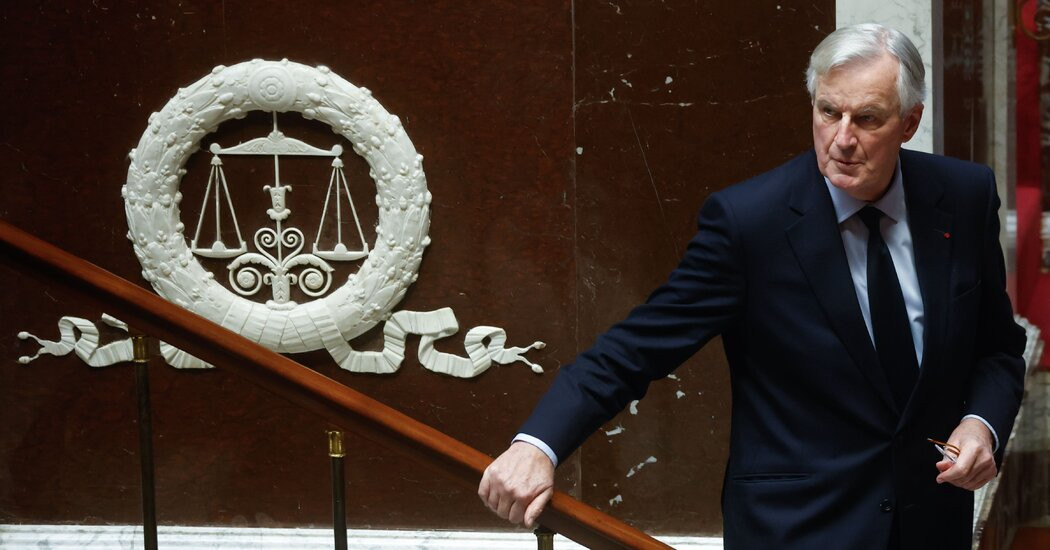

A vote by the lower house of Parliament could force the prime minister to resign, leaving his budget legislation in limbo.
France’s prime minister, Michel Barnier, is facing a no-confidence vote that is very likely to topple him and his cabinet, leaving the country without a functioning government or a budget as it enters the new year.
Does that mean France is hurtling toward a constitutional crisis, or an American-style government shutdown in which civil servants are unpaid and departments are unfunded? Not exactly.
France’s Constitution offers several scenarios that could keep the country’s affairs more or less in order, at least in the short term. French institutions are relatively strong, and the country’s laws provide for continuity in the absence of a government and a budget.
But there is a price: Investors are already selling off French stocks and bonds, raising the country’s borrowing costs. And the political turmoil that has gripped France since President Emmanuel Macron called snap elections last summer is worsening.
In a television interview on Tuesday evening, Mr. Barnier held hopes that lawmakers would display “a reflex of responsibility” to keep his government alive, and he warned of rising interest rates and chaos if a budget isn’t passed.
“Everything will be more difficult and more serious,” he said.
Mr. Barnier and his government are facing two no-confidence motions that were filed this week after he pushed a budget bill through the lower house of Parliament without a final vote.